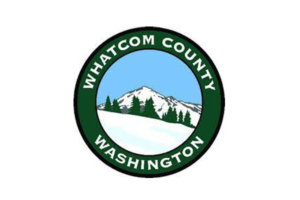Last month, New Venture Advisors had the opportunity to coach twelve fellows of the Good Food Business Accelerator for a full day session. What an incredible program and inspiring group of entrepreneurs! The Good Food Business Accelerator gets farm and food businesses ready for prime time, giving them the skills to launch or scale up, through (1) an intensive, customized six month curriculum that results in a strong business and sales plan and investor pitch, (2) introductions to top buyers and funders, and (3) free work space at Chicago’s premier hub for entrepreneurship and business innovation.
The entrepreneurs we met with were just stellar, with innovative businesses at the intersection of health and local. In addition to how impressed and energized we were by the Good Food Business Accelerator and the entrepreneurs we met, we also left in deep reflection mode.
The importance of a value proposition
Many of the entrepreneurs we met with have a high quality, important new food products but did not fully have a handle on their target market and unique value proposition.
Many started out selling at farmer markets which are full of early adopting Locavores of all types! Moving into wholesale markets is a game changer for a small food business, as you can’t necessarily talk to your customers directly to explain why your product is relevant and amazing for each of them.
Honing in on a core market can be tricky, but is hugely important, for wholesale success. Why? First, it ensures you maintain a strong focus on what is important to your business as you grow and develop. For example, if you have a healthy snack product – the way you grow and develop it out would be different if you are focused on active adults (perhaps you might spice it up or other exotic flavors) versus if you are focused on kids. Second, it helps ensure you position your company and use your limited resources effectively when it comes to marketing, branding, positioning, placement on retail shelves, etc. – when you don’t have the time or money to make your company relevant to everyone!
The exercise of developing your business’s unique value proposition can be time intensive but the steps involved proved to be invaluable for these entrepreneurs, giving them new insights on their business and growth plan.
Using a business model canvas as a diagnostic tool
A business model canvas is a one page snapshot of your company – including what you produce and sell, who you serve, the value you create, and the partners you work with. Whether your business is just launching or is well established, the business model canvas exercise can be incredibly productive as it forces you to put on paper what is core to your business. We were struck by how effective the business model canvas was as a tool for self-diagnosis, enabling entrepreneurs to articulate and assess the different parts of their business, and identify which components were weakest or most in need to analysis.
What about the businesses that don’t or can’t get accelerator type of support?
There are hundreds new food businesses launched each year, many of which are focused on local, healthy or responsibly sourced products. These are the businesses we want to see succeed! But building a successful food business is incredibly challenging. The landscape is crowded (with large Fortune 100 companies that have massive marketing budgets at their disposal), sourcing and production is complex, and customers are often fickle. Unfortunately, there are a limited number of accelerators as strong as GFBA out there, so these programs are very competitive to get into. Additionally, for some businesses, an accelerator doesn’t make sense given how time-intensive they are and the equity stake many of them take in businesses.
This led to the development of a new offering – Immersive Roadmapping: A Tune-Up for Small Businesses – to help them leap to the next level.
Immersive roadmapping is designed for all types of food businesses (product companies, food trucks, food hubs, processing centers, etc). New Venture Advisors delivers it 1-1 with an individual business, or as a group session of up to seven businesses together. It can be executed in-person or virtually. It can be effective as a single-day experience, or carried out over several days.
Regardless of the structure by which it is delivered, the basic objective of the offering is to provide intensive support and coaching for health- and/or sustainability-minded food businesses that, for whatever reason, are not good candidates for an accelerator program.
The program provides food business owners with clarity and direction on how to successfully manage and grow their business, and includes pre-session diagnostic support from New Venture Advisors, one or more targeted workshops customized for companies based on the pre-session diagnostics (these workshops range from target market selection to positioning statement development to new product/service development), and the development of a strategic roadmap including a performance tracking dashboard and 90 day plan.
Through Immersive Roadmapping, businesses get access to MBA level concepts that are provided in digestible, actionable chunks at a time when their business is ready to apply them. Entrepreneurs leave the session with clarity, direction and purpose – and the roadmap and tools to guide and assess their next steps. They have an understanding of what action steps they should not be prioritizing in the short term, arguably the most critical component of the definition of “strategy.”
Image: Pavel_Klimenko/Shutterstock.com



